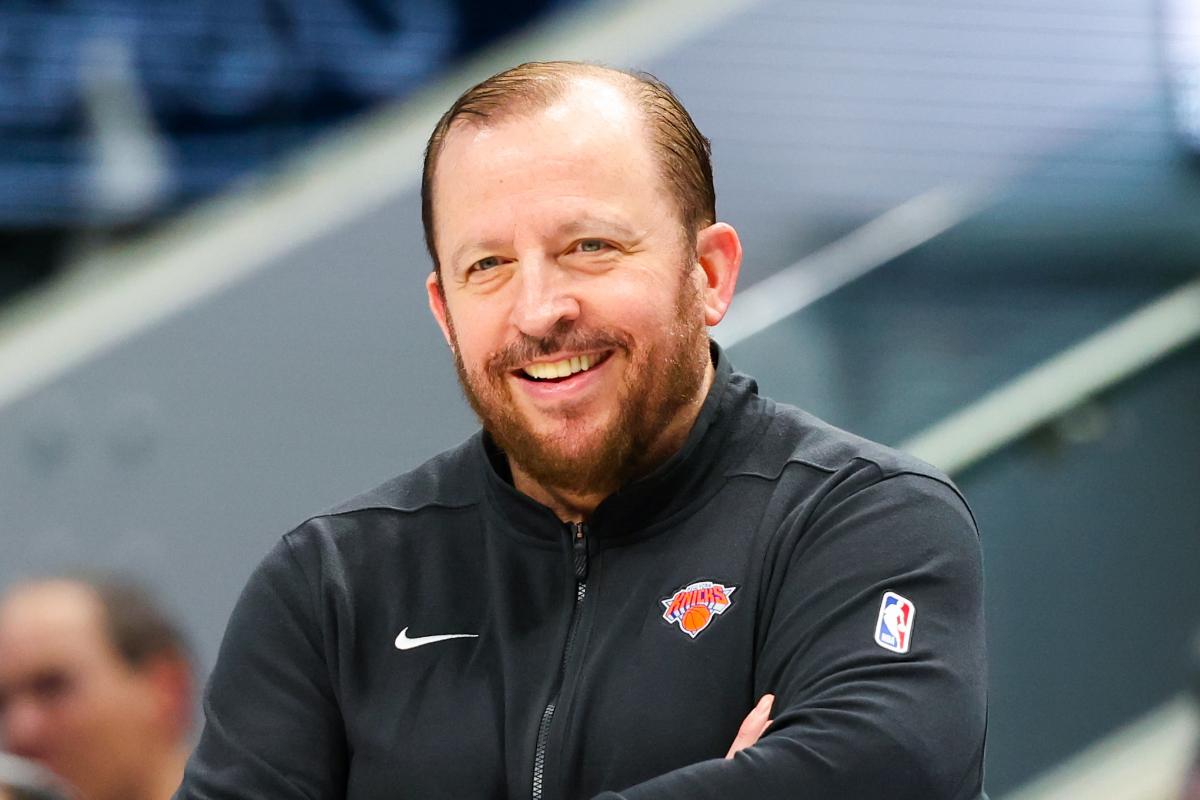
USA Today via Reuters
Jan 11, 2024; Dallas, Texas, USA; New York Knicks head coach Tom Thibodeau smiles during the second half against the Dallas Mavericks at American Airlines Center. Mandatory Credit: Kevin Jairaj-USA TODAY Sports

USA Today via Reuters
Jan 11, 2024; Dallas, Texas, USA; New York Knicks head coach Tom Thibodeau smiles during the second half against the Dallas Mavericks at American Airlines Center. Mandatory Credit: Kevin Jairaj-USA TODAY Sports
When your franchise parts ways, even after you helmed their journey to the Conference Finals for the first time in 25 years, the feeling is mostly one of disappointment. Some could even see betrayal of sorts. But that’s just how ruthless the basketball scenario has always been in New York. But it seems there is something for Tom Thibodeau to look forward to.
Watch What’s Trending Now!
Just three days after the Knicks’ playoff exit in a hard-fought Game 6 against the Pacers, the decision to move on from him was made. Of course, New York isn’t the kind of city where gratitude buys you time. The Knicks fan base is intense, and expectations are sky high. So when the team fell short of the Finals, the front office acted.
In a statement, team president Leon Rose explained the rationale behind Thibodeau’s firing, saying, “Our organization is singularly focused on winning a championship for our fans.” But before Thibs arrived in New York, the Knicks hadn’t had a taste of the playoffs for seven consecutive seasons. So when he changed that unfortunate record for the $7.5B franchise, he landed an impressive contract with the team. And that contract is what 7x NBA champ Robert Believes is the silver lining for Tom Thibodeau amid all the surrounding chaos.
ADVERTISEMENT
Appearing on his Big Shot Bob podcast, Horry put himself into Thibs’ shoes. “… If I was a coach, I wouldn’t give a s— if I got fired, because I’m get paid anyway. I’m going to sit my a– home, make some money,” he said. Now, before you scratch your head about how Tom gets paid after getting fired, that’s where his contract comes in.
Bleacher Report highlighted the numbers behind that silver lining. Despite the Knicks officially parting ways with Thibodeau, they’re reportedly still on the hook for at least $30 million. That figure was backed up by SNY’s Ian Begley, who noted that Thibs had guaranteed money left on his deal when he was let go. And this wasn’t just any deal. As ESPN’s Adrian Wojnarowski revealed last July, the Knicks had locked Thibodeau into a three-year extension, one that would’ve run through the 2027–28 season. Ironically, Thibs didn’t even make it to the first day of that extension.
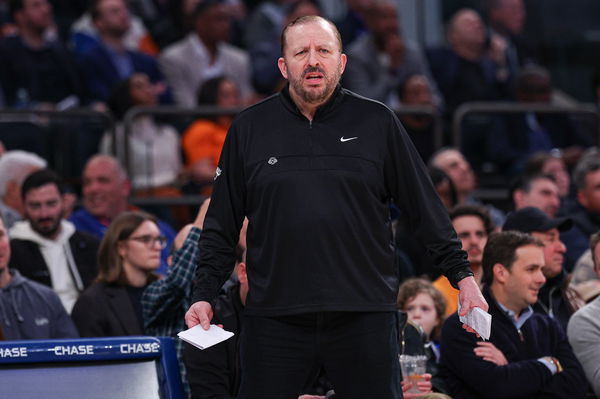
Imago
Apr 6, 2025; New York, New York, USA; New York Knicks head coach Tom Thibodeau reacts during the first half against the Phoenix Suns at Madison Square Garden. Mandatory Credit: Vincent Carchietta-Imagn Images
“He led us not only with class and professionalism for the past five seasons, but also to tremendous success on the court with four playoff berths and four playoff series victories. Ultimately, we made the decision we feel is best for our organization going forward,” Rose added. While the official announcement didn’t go into too much detail, it’s clear that Thibodeau’s firing was about more than just one playoff loss. There’s likely more to the story than what we’re seeing on the surface.
ADVERTISEMENT
ADVERTISEMENT
Possible reason behind the Knicks’ firing of Tom Thibodeau
Thibs helped bring the Knicks back to life in the East, but when a team with this much promise bows out earlier than expected, the coach is usually the first to feel the heat. And in Thibodeau’s case, the writing might’ve been on the wall all season long.
Remember when Mikal Bridges called him out for looking away from the bench? That wasn’t just a passing comment. When one of your core players publicly points something like that out, it reflects cracks in trust—something a team can’t afford heading into high-pressure games. Yes, Tom Thibodeau deserves credit for elevating the franchise. But for all the talent on the Knicks’ bench, he rarely tapped into it. Fans saw it. Analysts talked about it. The issue was crystal clear in Game 6 against the Pacers—Miles McBride, one of the most gifted players on the roster, was on the floor for just 11 minutes.
Top Stories
Giannis Antetokounmpo All but Confirms Warriors Trade With 6-Figure Decision: NBA Rumor
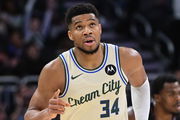
James Harden Leaves Clippers if Insider’s $197M Report Turns Out Correct
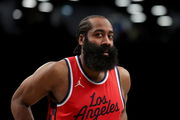
Paul Pierce Puts Reggie Miller on Blast Over Controversial Caitlin Clark Verdict
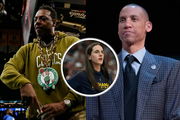
Everyone Notices Caitlin Clark’s Reaction After Reggie Miller’s Viral “Disrespect” on NBC
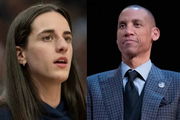
WNBA Fans Split After ESPN Report Reveals Internal Divide Among WNBPA Leadership
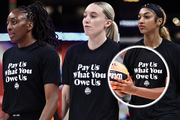
That’s tough to justify, especially when McBride has consistently stepped up whenever given the chance. And it’s not just him. McBride averaged 19 minutes per game in the playoffs, down from 26 last year. Meanwhile, Landry Shamet, Delon Wright, and Precious Achiuwa barely saw the court all season, even though they showed flashes of brilliance when trusted.
ADVERTISEMENT
Instead, Thibodeau stuck to his tried-and-tested starters—Jalen Brunson, Mikal Bridges, OG Anunoby, Josh Hart, and Karl-Anthony Towns. All of them averaged over 35 minutes a night. That kind of workload might get you win early on, but it’s a risky game. Brunson missed nearly a month with injury, and Anunoby’s health has always been a concern.
Thibodeau even had a habit of keeping his starters in games that were already wrapped up—an unnecessary gamble that could backfire at any moment. While this approach helped build the Knicks’ identity, it might’ve also drained their energy when it counted most. Against a young and explosive Pacers squad, that fatigue may have been the final nail in the coffin. In the end, it wasn’t just about wins and losses—it was about trust, depth, and long-term vision. And somewhere along the way, Thibodeau lost his grip on all three. What he won’t lose is his financial gains that he was supposed to have from his contract with the Knicks.
ADVERTISEMENT
ADVERTISEMENT
ADVERTISEMENT